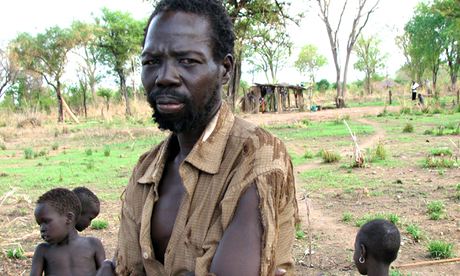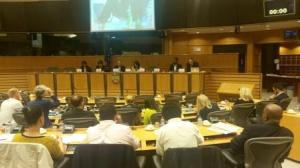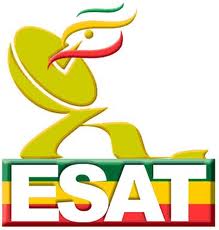Zone 9 bloggers must be immediately and unconditionally released
30 April 2014
ARTICLE 19
ARTICLE 19

 ARTICLE 19
ARTICLE 19
ARTICLE 19 condemns the arrest of 6 ‘Zone 9′ bloggers and 3 freelance journalists in Ethiopia, all of whom have been charged with working with foreign organisations that claim to be human rights activists and receiving finance to incite public violence through social media. The journalists and activists should be immediately and unconditionally released. Furthermore, we urge United States Secretary of State John Kerry, who will be visiting Ethiopia on 29 April to prompt the Ethiopian government to release all bloggers, activists and journalists that have been arbitrarily detained.
The arrests came two days after Zone 9 – an independent collective of bloggers who use social media to campaign against political repression – announced their return to activism. Zone 9 had temporarily suspended activities following a period of heightened surveillance and harassment, and the timings of these arrests appear to be a direct attempt to silence their legitimate work and activism.
The six bloggers; Atnaf Berahane, Mahlet Fantahun, Natnael Feleke, Befeqadu Hailu, Zelalem Kiberet, Abel Wabela, and 3 journalists; Edom Kassaye, Tesfalem Weldeyes and Asmamaw Hailegorgis of Addis Gudaymagazine, were arrested on Friday 25 and Saturday 26 April and are being held at Maekelawi detention centre in Addis Ababa.
“These charges are yet more evidence of Ethiopia’s slide towards a complete disregard for human rights. The fact that the bloggers and journalists were hauled to court on a Sunday with no legal representation shows the government’s determination to convict them on trumped up charges,” noted Henry Maina, ARTICLE 19 Eastern Africa Director.
“Coming just a few days before Ethiopia’s Universal Periodic Review at the United Nations and as the country gears up for the May 2015 elections, these arrests send a chilling message that alternative voices are not allowed in the country” added Maina. “We demand their immediate and unconditional release and further urge the Ethiopian government to stop intimidating and harassing journalists and activists.”
In its submission to the UPR, ARTICLE 19 noted that Ethiopia has mostly failed to comply with the recommendations that they accepted during the 2009 review, and the situation for freedom of expression and information has deteriorated rather than improved. State delegates must therefore seize this chance to ask Ethiopia’s government to respect its obligations of protecting and promoting freedom of expression. Specifically, we urge the State parties to call upon the Ethiopian government to stop intimidating, harassing, arresting and detaining journalists, including the Zone 9 group.
On 3 April, Ethiopian immigration officials detained a member of staff from ARTICLE 19′s East Africa office for 29 hours, without access to legal advice or consular support. He was thereafter deported back to Kenya and warned that he would face jail if he returned. ARTICLE 19 was one of the last remaining international human rights organisations working in Ethiopia and providing independent information to the UN Human Rights Council.
WHAT OTHER IFEX MEMBERS ARE SAYING
Ethiopia arrests journalists, bloggers: At least nine people rounded up in crackdown ahead of visit by top U.S. envoy
 “The Ethiopian authorities seem determined to crush any independent source of information, be it in print or online, and local, regional and international press freedom groups have so far failed to halt the ongoing harassment,” IPI Press Freedom Manager Barbara Trionfi said. “There needs to be concerted international pressure from Ethiopia’s donors and partners, including the European Union and the United States, to end the abuse and to pressure the Ethiopian leaders to respect their constitutional and international obligations to respect fundamental rights of media freedom.”International Press Institute 28 April 2014
“The Ethiopian authorities seem determined to crush any independent source of information, be it in print or online, and local, regional and international press freedom groups have so far failed to halt the ongoing harassment,” IPI Press Freedom Manager Barbara Trionfi said. “There needs to be concerted international pressure from Ethiopia’s donors and partners, including the European Union and the United States, to end the abuse and to pressure the Ethiopian leaders to respect their constitutional and international obligations to respect fundamental rights of media freedom.”International Press Institute 28 April 2014Ethiopia: Arrests Upstage Kerry Visit
 Sources told Human Rights Watch that one of the bloggers and one of the journalists have been regularly approached, including at home, by alleged intelligence agents and asked about the work of the group and their alleged links to political opposition parties and human rights groups. The blogger was asked a week before their arrest of the names and personal information of all the Zone9 members.Human Rights Watch 28 April 2014
Sources told Human Rights Watch that one of the bloggers and one of the journalists have been regularly approached, including at home, by alleged intelligence agents and asked about the work of the group and their alleged links to political opposition parties and human rights groups. The blogger was asked a week before their arrest of the names and personal information of all the Zone9 members.Human Rights Watch 28 April 2014Nine news providers arrested on charge of inciting violence
 “Jailing journalists and bloggers has the effect of nipping democratic development in the bud. At a time when the situation in Ethiopia is about to be the subject of a Universal Periodic Review by the UN Human Rights Council, we urge the government to respect its national and international obligations to guarantee freedom of information.”Reporters Without Borders 29 April 2014
“Jailing journalists and bloggers has the effect of nipping democratic development in the bud. At a time when the situation in Ethiopia is about to be the subject of a Universal Periodic Review by the UN Human Rights Council, we urge the government to respect its national and international obligations to guarantee freedom of information.”Reporters Without Borders 29 April 2014




